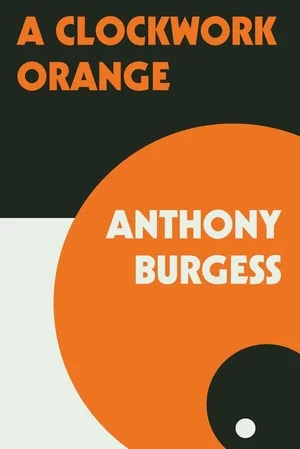Anthony Burgess (1917-1993) was often described as a polymath. He wrote novels in a variety of forms (dystopian, comic, satirical, naturalistic, historical, among others), screenplays, poetry, memoirs, and, probably closest to his heart, music. He was born into a secure lower middle class life in Manchester, United Kingdom. An alienating childhood seemed to begin a pattern of Burgess himself upsetting any advantages or positions he possessed, often flouting authority, often getting the short end of the stick, almost always displaying his ferocious intellect and astonishing linguistic skills. He was larger than life, and he cultivated that reputation. Despite his ego, his skill more often than not matched his estimation of himself, and his charm of self-possession would carry the reader along irresistibly. A Clockwork Orange, an uncharacteristic novel if anything could be called that for Burgess, became his calling card, his tag.
The University of Manchester Press, with the cooperation and sponsorship of the International Anthony Burgess Foundation, is carrying out a last wish of his: a fine uniform edition of his complete works. The standards set by the first six are very high: fine binding, excellent introductions, and superb notes and annotations by scholars. A new edition of A Clockwork Orange, perhaps at long last satisfactory to the author even in his afterlife, is now available with a restored text.
A Clockwork Orange
A Clockwork Orange
NEW EDITION AVAILABLE MAY 21, 2019.
“A brilliant novel.… [A] savage satire on the distortions of the single and collective minds.”—New York Times
In Anthony Burgess’s influential nightmare vision of the future, where the criminals take over after dark, the story is told by the central character, Alex, a teen who talks in a fantastically inventive slang that evocatively renders his and his friends’ intense reaction against their society. Dazzling and transgressive, A Clockwork Orange is a frightening fable about good and evil and the meaning of human freedom. This edition includes the controversial last chapter not published in the first edition, and Burgess’s introduction, “A Clockwork Orange Resucked.”

